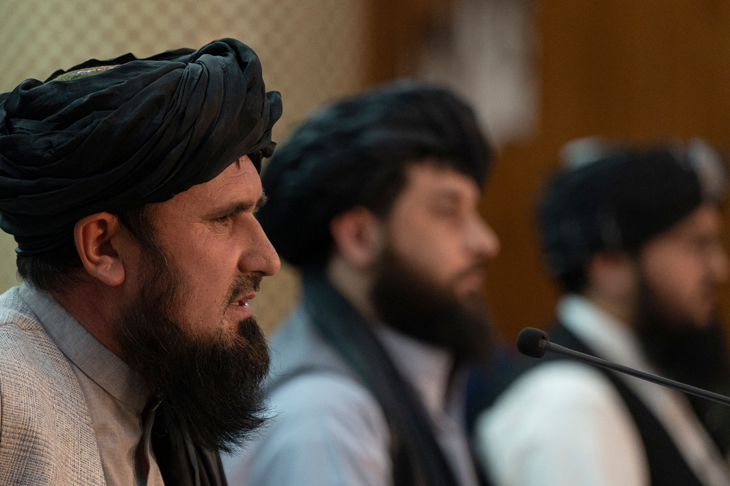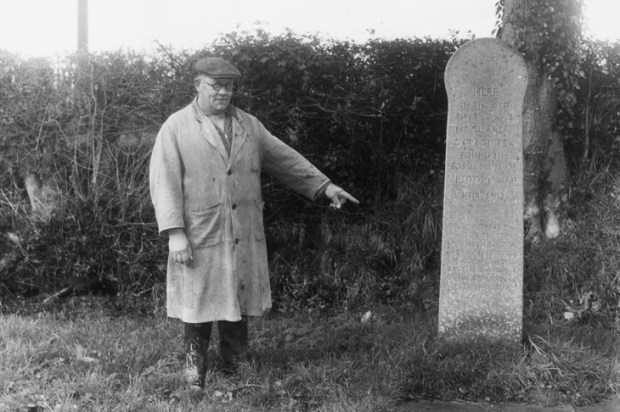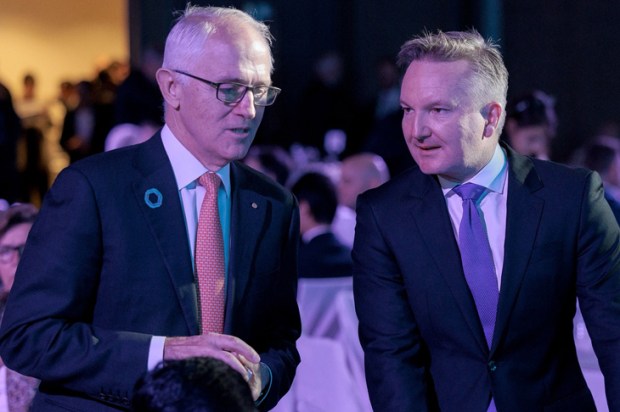One year on from the disastrous US withdrawal from Afghanistan and still there are those, such as retired US General David Petraeus, former head of Nato operations in Afghanistan, who believe we should have stayed a bit longer, proving the Afghan proverb that an intelligent enemy is better than a foolish friend. The uncomfortable question is, did the West back the wrong side?
We accept our relationship with Saudi Arabia and the US is in earnest negotiations with Iran, the world’s biggest sponsor of terrorism, on a new nuclear deal. So why not the Taleban? Perhaps it’s because the Saudis display more class in the application of Wahhabism, an ultra-puritanical version of Islam. This strain of Islamism running through the Taleban and its adherence to sharia law was largely sponsored by Saudi Arabia through the madrassas (Islamic schools) of central Asia and into the minds of impressionable consumers of Islamist extremism. During the USSR’s invasion and attempted occupation of Afghanistan, the US eagerly funded, armed and trained the mujahedin. A US sponsored jihad. These same bunch of Islamist extremists went onto form the Taleban (although many just hated foreigners). Following the overthrow of the Taleban at the end of 2001, the US and its Western allies then turned worms into snakes by spending twenty years supporting many of the same warlords who had been raping and murdering their way around Kandahar villages. The Taleban had originally set out to apply good old-fashioned justice to these depraved individuals which then rolled across the rest of Afghanistan. At times the shadow governor or Taleban district commander was no less trustworthy than the US-installed provincial governor.
The US also forgot one of the oldest lessons in Afghanistan – how to turn enemies against each other when you don’t really want either of them as friends. An Afghan joke tells of an angel sent to Earth to grant a wish to one person from each country on condition that whatever they want, their neighbour gets twice of the same thing. People in most countries say we don’t mind whatever you’re giving to our neighbours as long as you give me what I wish. When it came to the Afghan, he requested the angel pluck out one of his eyes. As with all high-context societies like Afghanistan, there is a message twisted within that goes to the evolutionary psychology of this culture. Whether stroking crocodiles and expecting them to purr, or believing scorpions can be trusted, there are some whose nature will never change. Although in this post-modern world we will soon be told it was the frog’s fault all along. Now there are cries for the plight of girls’ education and the freedom of women by the same people in the West who are no longer capable of defining a woman. These are the same people also telling us Western colonialism is evil. Meanwhile we tolerate many of the same practices in the suburbs of our own Western countries. Instead, we call it multiculturalism, not oppression.
Lessons from history tell us it would have been more effective to turn the Taleban against Al Qaeda, the West’s real enemy. In The Mission, the Men and Me, former Delta Force commander Pete Blaber recounts meetings with Taleban fighters who complained Al Qaeda treated Afghans ‘like they were dogs’, even forbidding the Taleban from speaking directly with them. Many tribal leaders hated these foreign insurgents. According to an old Pashtun myth, Alexander the Great’s mother Olympias wrote him a letter getting on his case about taking so long to knock off a primitive, poverty-stricken people. So, Alexander captured three tribal chiefs and sent them back to Macedonia, each one carrying an offering of soil. They were to deliver the soil as a token to Olympias from her son. But outside the Queen’s chambers, the three chiefs got into a fight and killed one another. Olympias wrote to her son, ‘Now I understand.’ Even Islam took two centuries to become embedded within the DNA of Afghanistan following the capture of Herat in 642AD. Perhaps one of the better lessons from history is from Lord Curzon, Britain’s former viceroy of India who implemented a cunning combination of tribal patronage with multiple agreements that as long as the tribes did not interfere with India, Britain would leave the tribes to conduct their own affairs. Surely $US two trillion could have bought us a similar bargain.
We were told the danger was from the Taleban providing a sanctuary for Al-Qaeda from which it could plan terrorist attacks on the West. Even though not a single terrorist attack against the West has ever been planned or carried out by the Taleban before or after 9/11. Meanwhile Pakistan provided a sanctuary for both the Taleban leadership and Al Qaeda (including the architect of the 9/11 terrorist attacks Osama Bin Laden). During a meeting at my compound with the Senior Commander for Afghanistan National Police in Ghazni a call came over his radio with information of an SUV packed with explosives headed towards the city. The potential target was the Ghanzi Forward Operating Base with about 1,500 Polish and US troops. The vehicle had come from Pakistan. Not surprising since the turning point for the Taleban’s resurgence came in 2007 when Pakistan cut a deal with the tribal leaders in the frontier region opening the highway between Pakistan and Afghanistan so insurgents could move freely and with impunity. Now Pakistan has the government in Kabul it worked so hard to achieve.
The likes of Petraeus and other ‘experts’ claim these ungoverned areas of Afghanistan will again become safe havens for terrorists. In reality, outside the main roads of Afghanistan, the place was ungoverned even during the height of the Obama surge. Let’s not forget all those so called ‘no-go zones’ in Paris, and the Brussels suburbs of Molenbeek and Schaerbee. They are as much a breeding ground for Islamist extremist terrorism.
Significantly for Australia in the context of security in our region, history may point to the US withdrawal from Afghanistan as the flashing light signalling our most important ally was in decline as a credible global hegemonic power. Remember the top US commander, General Mark Milley, (you know the guy worried about something called ‘white rage’), was telling everyone it would be years before the 300,000-strong Afghan National Army fell to the Taleban. They collapsed in ten days. US President Biden called the withdrawal an ‘extraordinary success’. Whether Petraeus, Milley or Biden, they are all the same establishment generation who for twenty years told us to ‘stay the course’. As if straight out of Leon Festinger’s When Prophecy Fails. The author infiltrated a group that was expecting the imminent end of the world on a certain date. When that prediction failed, the movement did not disintegrate, but grew instead, as members vied to prove their orthodoxy by recruiting converts. Meanwhile one lesson yet to be learned is how despite the US having the most advanced military in history, the largely illiterate, sandal-wearing Taleban, built themselves to become one of the most effective insurgencies in modern history. Come to think of it when might they come in handy in the future? In Afghanistan, it’s about the strongest tribe, and it turns out the US backed the weakest.
Got something to add? Join the discussion and comment below.
Get 10 issues for just $10
Subscribe to The Spectator Australia today for the next 10 magazine issues, plus full online access, for just $10.
You might disagree with half of it, but you’ll enjoy reading all of it. Try your first month for free, then just $2 a week for the remainder of your first year.














Comments
Don't miss out
Join the conversation with other Spectator Australia readers. Subscribe to leave a comment.
SUBSCRIBEAlready a subscriber? Log in